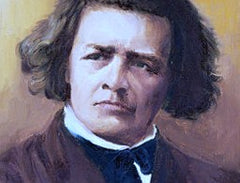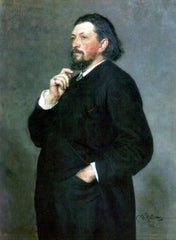Victor Ewald was a Russian composer who was born in St. Petersburg in 1872 and later became a member of an elite group of Russian musicians known as gentlemen musicians because music was their passion and their avocation. Like many others in the group, Ewald had a formal music education and his was acquired at the St. Petersburg Conservatory. Ewald enrolled there when he was only twelve years old in 1872.
For those who aren’t familiar with the St. Petersburg Conservatory, Anton Rubinstein founded this great institution in 1861. For Russia, it was the very first of its kind. While at the conservatory, Ewald studied composition and harmony, as well as instrument training in piano, horn, cello and cornet. His cello teacher, Karl Davidov, encouraged him to continue practicing his passion at every possible opportunity throughout his life. Good advice, which he eagerly followed.

Thanks to Davidov and his teachings, Ewald soon joined an extraordinary group of musicians, who although they were considered to be amateurs during that time period, made important contributions to developing a national style of music in Russia. Up until then, both musical teaching and musical practice had been mainly dominated during most of the 19th century by Germanic tradition. And, Ewald soon became one of the most versatile and active members of the group through his serious interest in indigenous folk songs, which he shared with the other members.

Mitrofan Petrovich Belyayev
Initially, that remarkable group of passionate musicians was started by the founder of a Russian publishing house of music, Mitrofan Petrovich Beliaeff (or Belyayev), which was named after its founder. On Friday evenings, the members would meet at his home for magnificent music-making and lively conversation. Those Friday night music meetings soon became known as Les Vendredis and, besides Ewald, were attended by some well-established composers who shared a modicum of musical prominence. They included names like Sergei Tanayev, Peter Tchaikovsky, Nikolai Rimsky-Korsakov, Alexander Borodin, Modest Mussorgsky, César Cui, Alexander Scriabin, and Mily Balakirev. At the time, the group was known as The Mighty Handful and they complemented one another, both as individuals and as a highly talented group of musicians. Their musical meetings at Beliaeff’s home continued every week from 1888 until he passed away in January 1904.
Ewald’s musical life was greatly influenced by those Friday evening meetings and Beliaeff’s importance was much more significant than just as the host. Much like Davidov, he also encouraged Ewald’s and the other members’ participation in concerts, as well as in a string quartet where Ewald played the cello and he played the viola. Ewald actually continued as the cellist in this quarter for 16 years. Their quartet was considered to be the most influential group in all of St. Petersburg during the later 19th century and it was said that Russian concertgoers had them to thank for the introduction into their musical lives of the prevailing quartet literature of the times.
In spite of his musical genius, Ewald’s chosen profession was actually as a civil engineer. Ewald excelled at his work and in 1900, he was appointed to the Institute of Civil Engineers (ICE) Faculty as Manager and Professor of Construction Materials. The majority of the members of his musical peer group, much like Ewald, also worked at other professions. Korsakov was a naval officer, Balakirev was a railroad clerk, Cuis was an engineer and a soldier, Mussorgsky was an officer with the Imperial Guard, and Borodin was a chemist.
It is considered to be a historical fact that Ewald wrote his four quintets while making music with his musical contemporaries and friends in the Mighty Handful. Whether those quintets were originally presented as brass quintets or string quartets still remains a question to be answered. It is believed, however, that they spanned twenty-five years. During his lifetime, Ewald published only one of his brass quintets, and it was the Brass Quintet in B-flat minor.
In addition to his magnificent playing and composing, Ewald also published and collected Russian folk songs. And, to this day, brass players will forever be indebted to him for his series of quintets, which are a brass repertoire staple and representative of the Romantic style literature of the era. The American Brass Quintet, throughout the 1974 to 1975 concert season, first afforded his pieces the exposure that they deserved at Carnegie Hall. His four quartets are Quintet no. 1 in B flat minor (Op. 5) from 1890, Quintet no. 2 in E flat major (Op. 6) from 1905, Quintet no. 3 in D flat major (Op. 7) from 1912, and Quintet no. 4 in A flat major (Op. 8) from approximately 1888. His symphony” for brass in B flat minor is scored for six brasses. All of his quintets are excellent examples of Russian romantic writing, although the 2nd and the 4th are rarely played, the 3rd does garner some performance time these days, which is more than in past years. His 1st quintet is definitely the most popular, remaining a staple of brass quintet literature to this day - here played by Center City Brass Quintet:
Victor Ewald passed away in Leningrad on April 16th 1935, having lived 74 years, four months and 20 days. His fellow ICE professors all signed his obituary and made mention of the fact that their entire industry was beholden to him and that his work involved leaving behind an overwhelming legacy in the advancing and developing of construction materials. It would seem that Ewald was not only a master of music, but a master of civil engineering as well, a legacy that any man could be proud of.